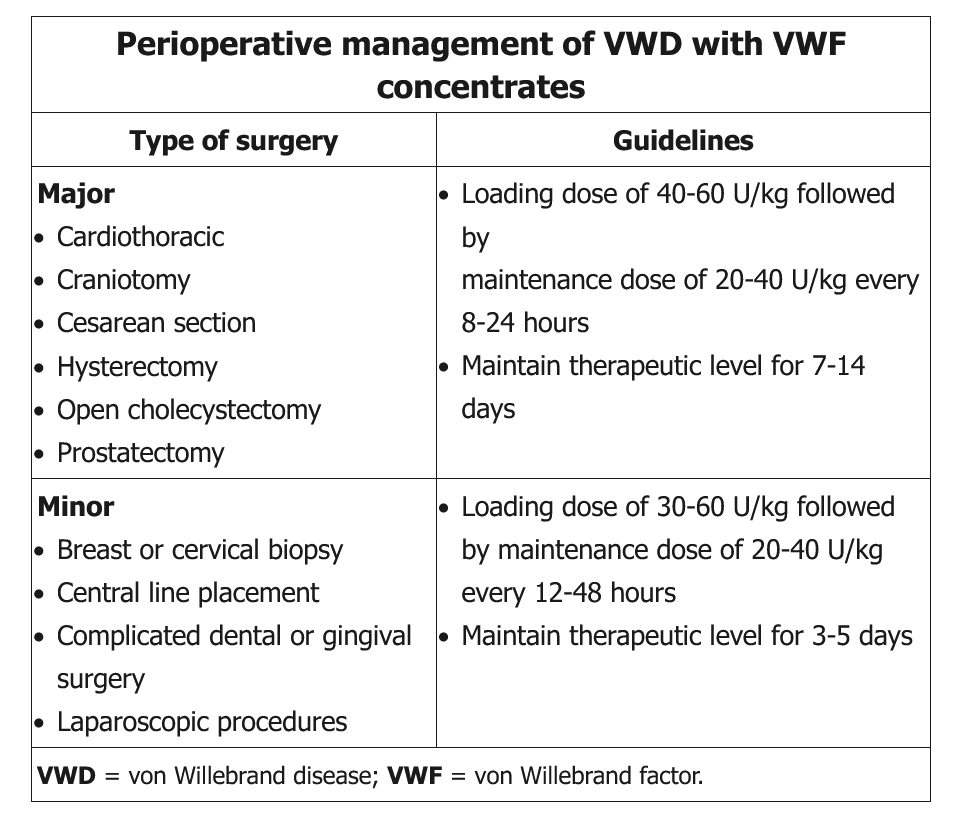perioperative management of von willebrand disease vwd vwf
- related: Hematology, Perioperative
- tags: #hemeonc

Von Willebrand disease (VWD) is the most common inherited bleeding disorder. Type 1 VWD accounts for 75% of cases and is marked by a quantitive deficiency of von Willebrand factor (VWF), leading to low VWF antigen, VWF activity, and factor VIII levels. Patients with blood type O have VWF levels that are up to 30% lower than those with blood types A, B, or AB.
Most patients (99%) with VWD have mild or asymptomatic disease and never seek clinical attention. However, clinically significant skin and mucosal bleeding can occur. Treatment of bleeding complications is typically achieved with:
- Desmopressin (DDAVP) - an antidiuretic hormone analogue that increases VWF and factor VIII levels and used primarily for mild bleeding episodes or prior to minor procedures. DDAVP is effective for mild/moderate type 1 VWD, but those with severe bleeding (such as this patient who required cauterization) often do not respond sufficiently (Choice C).
- VWF preparations - used in severe bleeding episodes in those who do not respond to desmopressin and perioperatively for invasive surgeries (such as neurosurgery). Several different preparations, including intermediate-purity factor VIII concentrates, high-purity VWF concentrate, and recombinant VWF, are available. In this patient who has had severe bleeding and is preparing for neurosurgery, administration of VWF preparations will likely lead to VWF activity levels close to 100% and is the most effective strategy to prevent perioperative bleeding.
Aminocaproic acid is an anti-fibrinolytic agent that is sometimes used for patients with VWD who have menorrhagia or mild mucosal bleeding; it is usually used in combination with other therapies.
Cryoprecipitate is not routinely used for VWD due to the risk of viral transmission; VWF preparations are the preferred therapy for more serious bleeding or prior to a major procedure.
Platelets contain a small proportion of total blood VWF and can be used in patients who have refractory bleeding with VWF concentrates.